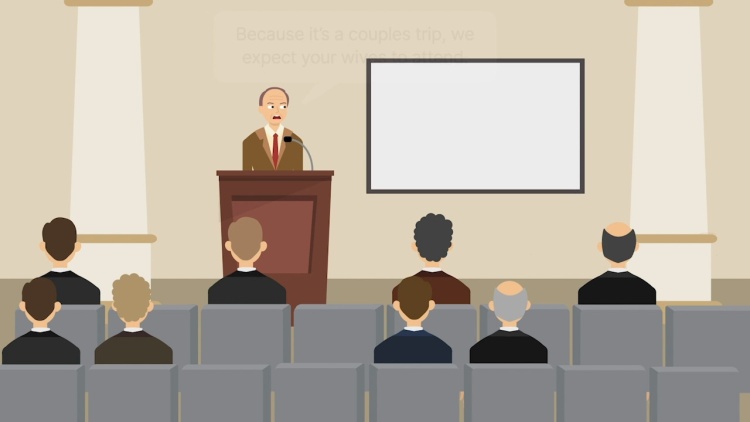Allen J. McDonell v. Commissioner
United States Tax Court
26 T.C.M. 115 (1967)

- Written by Sara Rhee, JD
Facts
Allen J. McDonell (plaintiff) was a home office salesman for Dairy Equipment Co. (DECO). In 1959, DECO held a sales contest for its distributors and salesmen. Each winner was to receive a free trip to Hawaii with his wife. McDonell, as a home office salesman, was ineligible for the contest. However, DECO management ordered McDonell and his wife to accompany three of the contest winners and their wives to Hawaii in 1960. McDonell’s role was to ensure that informal discussions about DECO did not lead to complaints and thereby damage DECO’s reputation with the winners. The presence of McDonell’s wife was deemed necessary to assist him in hosting a trip for couples. DECO instructed McDonell that the trip was not a vacation but an assignment. He and his wife were to stay continuously with the winners and were forbidden from taking personal time during the trip. McDonell was one of four home office salesmen selected that year to accompany four different groups of winners. Each home office salesman was selected at random. Their selection had no correlation to their work performance, and a home office salesman’s selection one year did not prevent his selection the next year. They did not receive a pay cut for the duration of the trip and did not lose vacation time. McDonell and his wife left for Hawaii for ten days in February 1960. They stayed with the winners as instructed and did not take any spare time for themselves. The cost of the trip for McDonell and his wife was valued at $1,121.96. McDonell reported $600 in commissions on his 1960 tax return for the cost of his wife’s trip. His tax return was found to have a deficiency in the amount of $1,121.96. McDonell argues that the entire cost of the trip was not income and that he erroneously reported the $600 as income.
Rule of Law
Issue
Holding and Reasoning (Tannenwald, J.)
What to do next…
Here's why 907,000 law students have relied on our case briefs:
- Written by law professors and practitioners, not other law students. 47,100 briefs, keyed to 996 casebooks. Top-notch customer support.
- The right amount of information, includes the facts, issues, rule of law, holding and reasoning, and any concurrences and dissents.
- Access in your classes, works on your mobile and tablet. Massive library of related video lessons and high quality multiple-choice questions.
- Easy to use, uniform format for every case brief. Written in plain English, not in legalese. Our briefs summarize and simplify; they don’t just repeat the court’s language.





